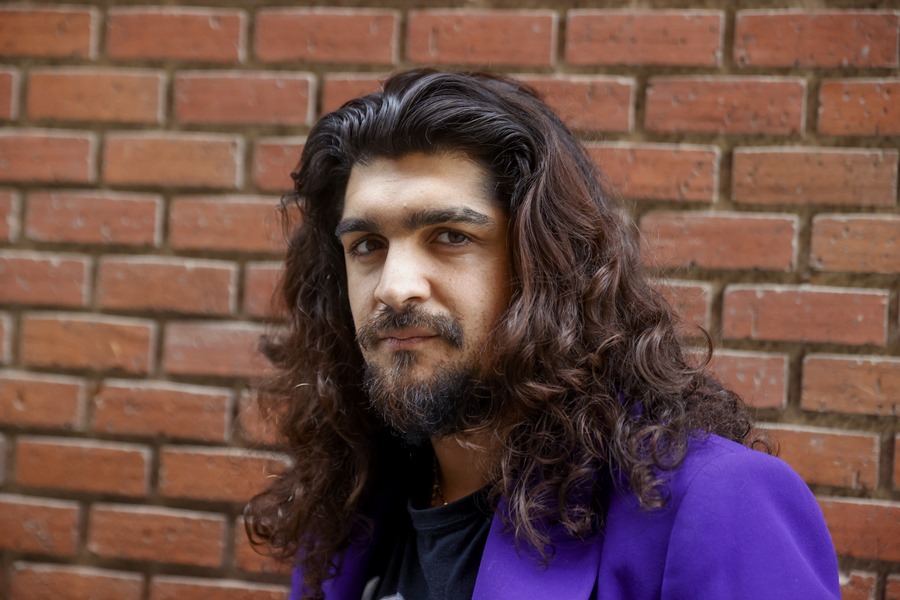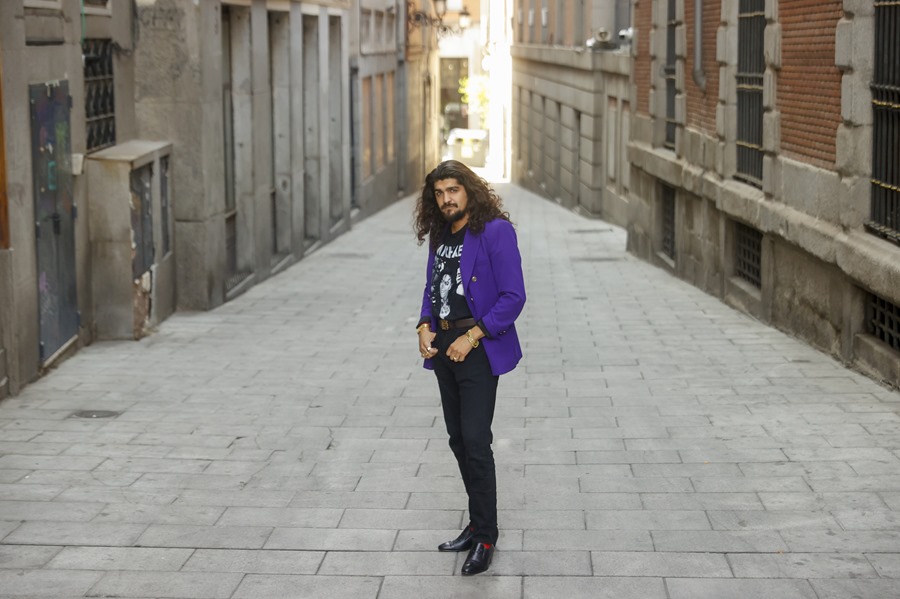Xavier Herrero |
Madrid (EFE).- Israel Fernández, who is considered the great hope of new flamenco, sings and writes on his new album, “Pura sangre”, about social justice, also about a childhood of humble origins and about “the blessing ” of being a gypsy, despite the fact that not everyone sees it that way.
“Spain is not a racist country, quite the contrary”, he affirms convinced in an interview with EFE on account of the controversial insults received by the Real Madrid player Vinicius, an idea that he defends despite having suffered some episode of intolerance himself .
For example, he recounts how “as a little boy” he heard other children in his town in Toledo being told: “Don’t hang out with them, they’re gypsies.” And just a few years ago, he recalls that when he entered a pharmacy and asked to see the indications of a medicine in case he had a compound, they answered: “If you pay before.”
“It is pure and hard racism”, agrees, but still insists that Spain, a country that receives tourism “where everyone tries to be happy”, is no exception to what happens in the rest of the world , because “it exists everywhere”.

Fernández (Corral de Almaguer, Toledo, 1989) in any case feels “blessed” for being part of “a very special way of feeling”, in which there is “a lot of union and harmony with the family”.
“Gypsies are the race with the fewest people in the world. I feel very happy to be one and to have been raised the way I have been raised, although there are customs that I would change, such as getting married so young, because love is understood more forward, ”he says.
Purity of truth and loyalty
In “Pura sangre” (Universal Music), which was released this Friday, however, it does not celebrate the purity of ethnic groups or races, “but that of truth, sincerity and loyalty with what one does”.
“My dad never had money and we’ve always lived up to date”, he sings in “Soleá de mi casa”, one of the advances on this album in which he celebrates a humble but full childhood. “That stays with you for the rest of your life, because what you experience as a child is 80 percent of what you are as an adult,” she reflects.
As he did in the previous “Amor” (2020), he is the author of the lyrics: “I am not a composer by force for wanting it to be mine, because for me there is nothing of ours, everything is shared and thanks to that has life. What one saves happens to him like money, which rots ”.
With that class consciousness, in the bulería “Al tercer mundo” he calls for greater universal justice. “It is understood that one is rich when he has a lot. But for me a rich world is one in which everyone has something. If I won the lottery, I would distribute it to those who need it, because helping is a privilege, ”he points out.

Produced by Chaboli, in “Pura sangre” he repeats his collaboration with the guitar of Diego del Morao and in his eagerness to push the limits of flamenco beyond without exceeding them, he also has the vision of the Spanish DJ and electronic producer Pional.
In the search for “musical friendships”, however, he regrets that flamenco is sometimes treated like a laboratory Frankenstein without order or concert, thus adding to the corrections of the also cantaor Arcángel when he recently specified that neither the Eurovision song “EaEa” by Blanca Paloma is flamenco, nor is the album that received the Odeón Award in that category, “La folcrónica” by María Peláe.
“The term is used very loosely. Flamenco is one thing and then there are other flamenco styles. It’s like calling a foot a hand”, she insists, before celebrating “experiments” such as Rocío Márquez’s album with DJ Bronquio, because “she is a cantaora who has training, she knows what cante is and what it does” .
Limit to innovate
Where then is the limit to innovate without jumping the parameters of the genre? “It is having the clear base of the fans. You have to know who Juanito Mojama and Manuel Vallejo are or what a martinete is”, he says, and gives the example of Enrique Morente, “who could do what he did because he knew what flamenco singing was even lying down”.
Several important commitments accumulate on his agenda, the most immediate, that of granting the title of Favorite Son of Castilla-La Mancha on May 31.
“It gives me a lot of happiness, but also a lot of responsibility. When they praise me so much it makes me nervous, because it is difficult to meet the expectations of the public, ”he confesses.
Then there will be a tour that will start on July 1 at the Cervantes Theater in Malaga, with commitments that he admits make him more tense than others. “Although I give myself to death at all concerts, as if it were the last time,” he says.
In this sense, he points to his performance on July 26 at the Teatro Real in Madrid as part of the Universal Music Festival, “a dream come true”. “Like Primavera Sound, which was unthinkable, and I’m very happy because there are a lot of young people and I don’t want any more than that they don’t miss out on flamenco, which is very beautiful and makes you more elegant”, he concludes.






